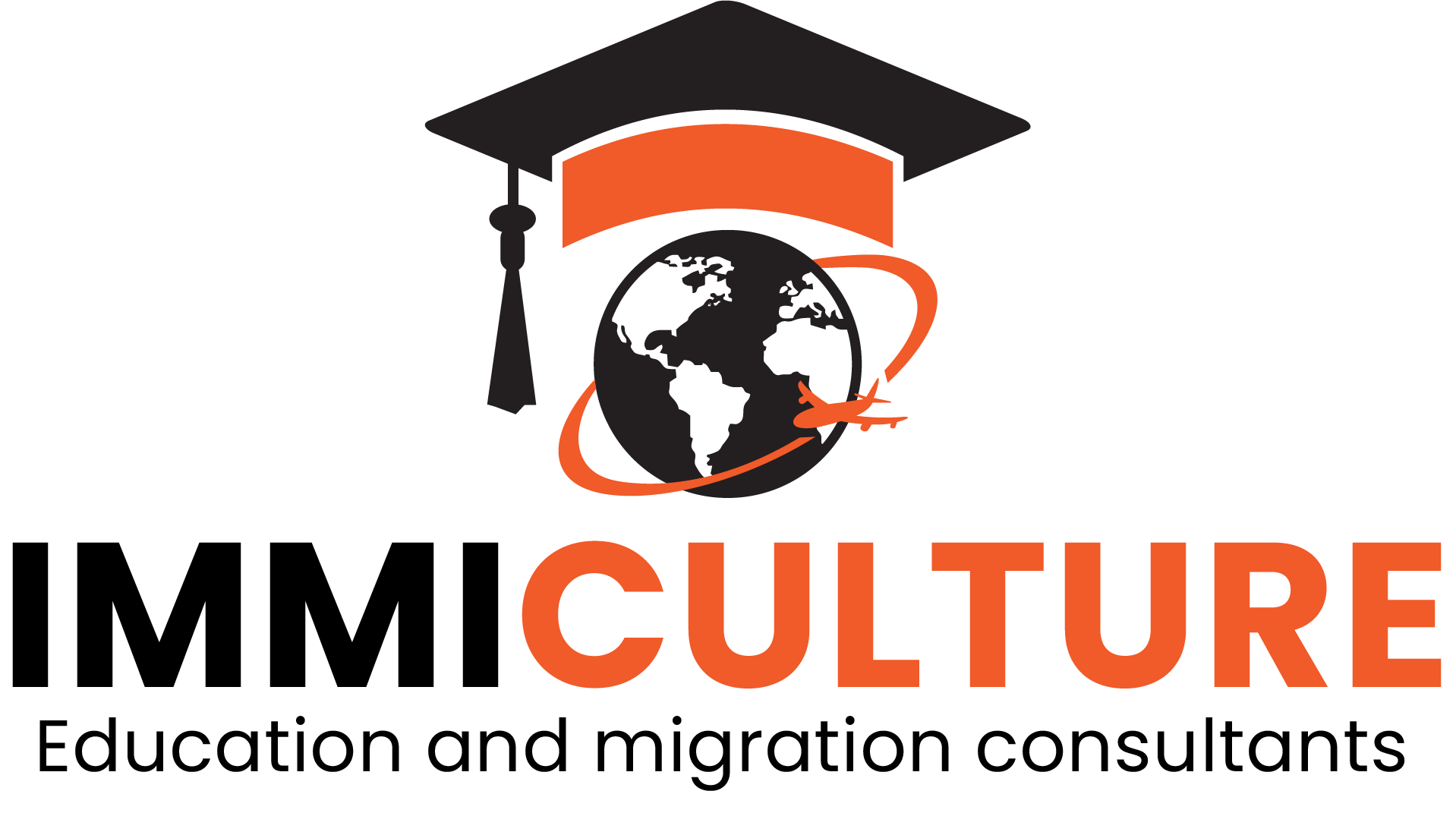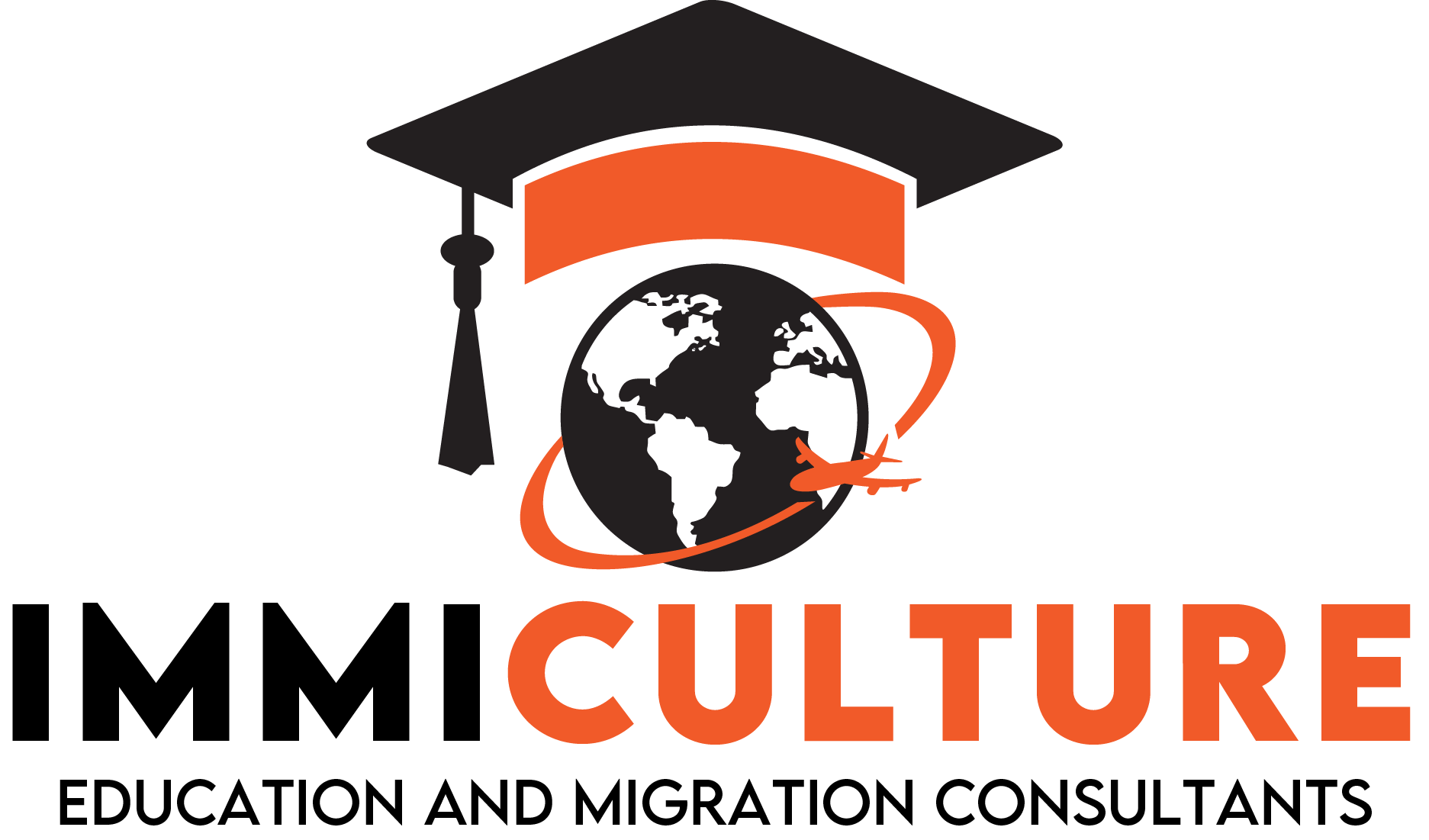Canada provides a friendly atmosphere that honours diversity and international viewpointsInternational students flouri sh in this vibrant and cutting-edge environment with a dedication to safety and top-notch research possibilitiesFurthermore, Canada’s employment opportunities after graduation facilitate a smooth transition from college to a prosperous and fulfilling professionChoose Canada for a life-changing educational experience that combines world-class academics with a vibrant cultural landscape.
Our knowledgeable counsellors have extensive knowledge of the constantly changing immigration scene.
We recognise that every journey is different, and we adjust our services to meet your objectives.
We’re here to help you through the entire process, from application to arrival.
– Our Consultation is offered by authorized and licensed Immigration Consultants.
– Guided through the eligibility and process step-by-step.
– We uphold transparency and a secure online process.
– Any process should have a complaint resolution system.
– Each case is evaluated several times before its submission.
– Easy evaluation of the qualifications and other skills.
For the humanities, a high school education of 65% is required, and for science and commerce, 70–80%
Students who have scored below 60% m can take Foundation and Diploma programs.
Proving one’s ability in English or French via accredited tests such as the TEF for French and the IELTS or TOEFL for English
The required overall English language proficiency score is 6.5, including 6.0 in each band.
A minimum TOEFL score of 80 is required for undergraduate admissions to Canadian universities.
• Obtaining a 70% average upon completion of an undergraduate degree.
• Language proficiency in either French or English as determined by reputable exams like TEF (for French) or TOEFL (for English).
• TOEFL: Canadian universities require a minimum TOEFL score of 90 for graduate admissionIELTS: With an overall score of 6.5 and no bands lower than 6.
• Entrance Exams: Standardised tests like the GMAT (Graduate Management Admission Test) or GRE (Graduate Record Examination) may be required for admission to some programmes.
• Academic Acceptance: Get accepted into a reputable Canadian university and get a formal acceptance letter.
• Online Application Mastery: Fill out the online application for a student visa by creating a GCKey account on the IRCC websiteEnter correct information and attach necessary files, such as your admission letter.
• Financial Preparation: Show that you have the resources necessary to pay for your living expenses, tuition, and round-trip travelPresent pertinent records such as bank account statements, information on a scholarship, or evidence of a Canadian bank account.
• Biometrics Appointment: Make an appointment for biometrics processing at one of the approved Visa Application Centres (VACs) in order to supply your fingerprints and a photo.
• Medical Examination (if required): See a panel physician who has been approved if you need to have a medical examinationVerify adherence to health regulations.
• Statement of Purpose: Write a strong statement outlining your course selection, your study objectives, and how it fits with your long-term objectives.
• Application cost Payment: Use the approved ways listed on the IRCC website to pay the non-refundable application cost.
• Patience and Submission: Send in your online application, then wait patiently while your student visa is processedVisit the official website to view the projected processing times.
• Port of Entry (POE) Letter: Upon approval, you will be issued a Port of admission (POE) letter, which is an essential document for your admission into Canada.
• Arrival and Educational Pursuit: Clear customs upon arrival, enrol at the school of your choice, and complete any further criteria mentioned in the permission letter for your visa.
• Choose a Designated Learning Institution (DLI)
• Receive Letter of Acceptance
• Create a GCKey Account:- Your online passport for the application process.
• Complete the Online Application Form
• Pay the Application Fee
• Biometrics Appointment
• Medical Examination (if required)
• Statement of Purpose
• Submit Your Application
• Monitor Application Status
• Receive Port of Entry (POE) Letter
• Arrival and Commencement of Studies
Are you prepared to study in Canada? This is your checklist for documents:
Use these essential documents to safeguard your Canadian dream!
To apply for a Canadian student visa, you typically need:
• Letter of acceptance: from a designated learning institution in Canada.
• Proof of identity: such as a valid passport or travel document.
• Proof of financial support: to cover tuition, living expenses, and return transportation.
• Language proficiency: usually demonstrated through English or French language test results like IELTS or TOEFL.
• Passport-sized photos: as per the specific requirements.
• Statement of Purpose (SOP): outlining your study and career goals.
• Academic transcripts and diplomas: from previous education.
• Medical examination: in some cases, you may need to undergo a medical checkup.
• Proof of ties to your home country: to demonstrate your intention to return after studies.
Explore many opportunities with our main and colourful intake.
Explore many opportunities with our main and colourful intake.
Take in everything that Canada has to offer at this busy time of year.
In the middle of the winter wonderland, begin your journey afresh.
Examine programmes designed to give winter starters a distinctive academic route.
Follow your academic goals while experiencing the beauty of a Canadian winter.
Some colleges offer programmes in the summer for those looking to get a head start.
Enjoin Canada’s blossoming landscapes for a revitalising start to your academic career.
Verify the precise intake available with the university of your choice.
Make sure your application process aligns with our various intakes by planning ahead.
Depending on the programme you select, your annual tuition can range from CAD 7,000 to CAD 29,000.
Enjoy reasonably priced living expenses, which range from CAD 10,000 to CAD 15,000 on average per year, guaranteeing a financially stable time for students.
Some colleges offer programmes in the summer for those looking to get a head start.
Enjoin Canada’s blossoming landscapes for a revitalising start to your academic career.
Increase the accessibility of your Canadian education by gaining financial support through a variety of scholarships.
Take advantage of Canada’s abundant job market to get a head start on your professional path and gain useful work experience before, during, and after graduation.
Invest in a degree that is acknowledged throughout the world to improve your professional opportunities.
Remember that these are only approximate figures and that actual expenses may vary.
Your aspirations are the compass, and Canada’s top universities are the destination.
These universities represent just a glimpse of the educational treasures Canada has to offer.
Canada’s Academic Excellence: Top Universities Highlights….
• University of Toronto
• University of British Columbia (UBC)
• Computer Science and Information Technology
• Business and Management
• Engineering
• Health Sciences and Nursing
• Environmental Science
• Finance and Accounting
• Media and Communication
• International Relations and Political Science

